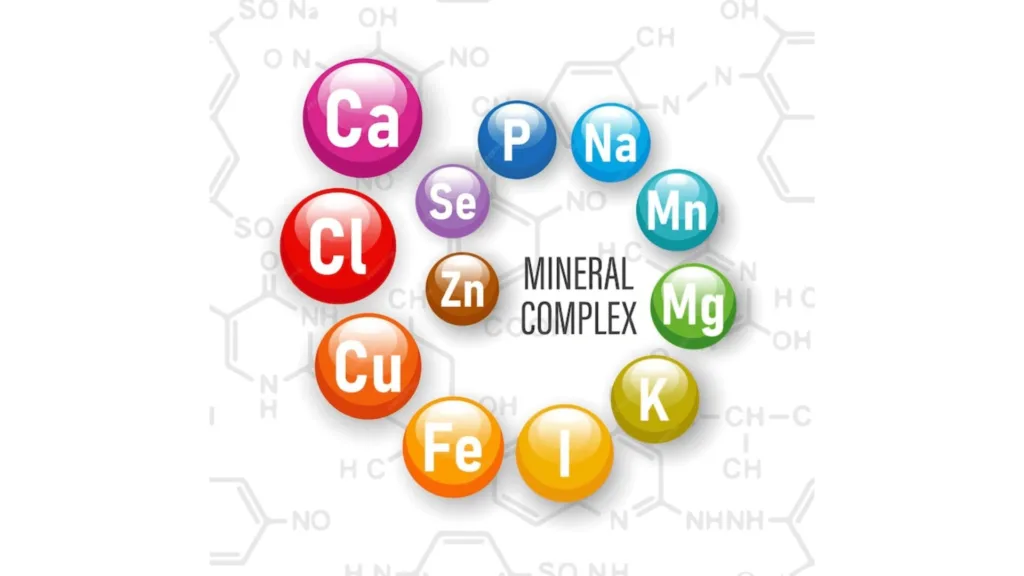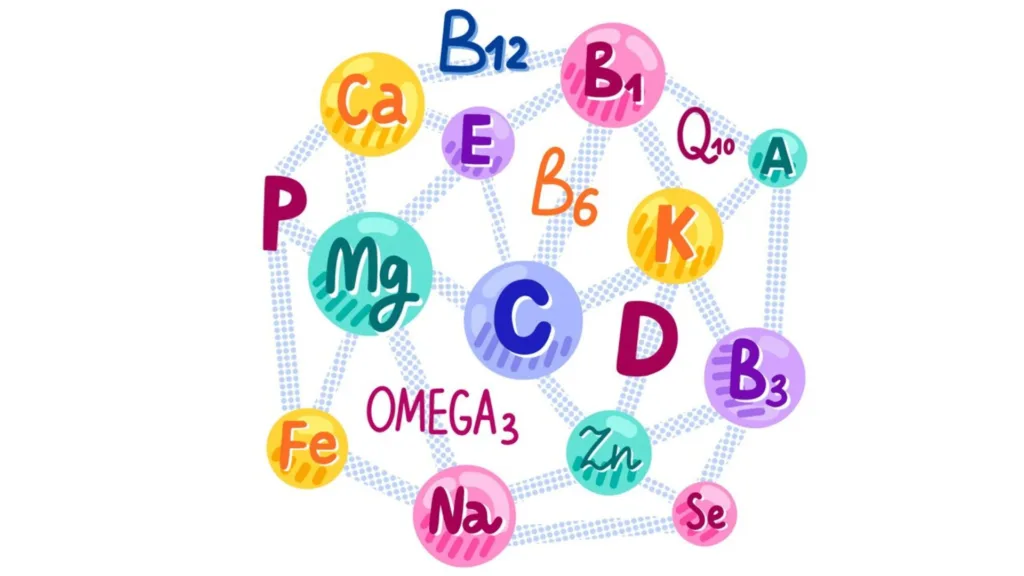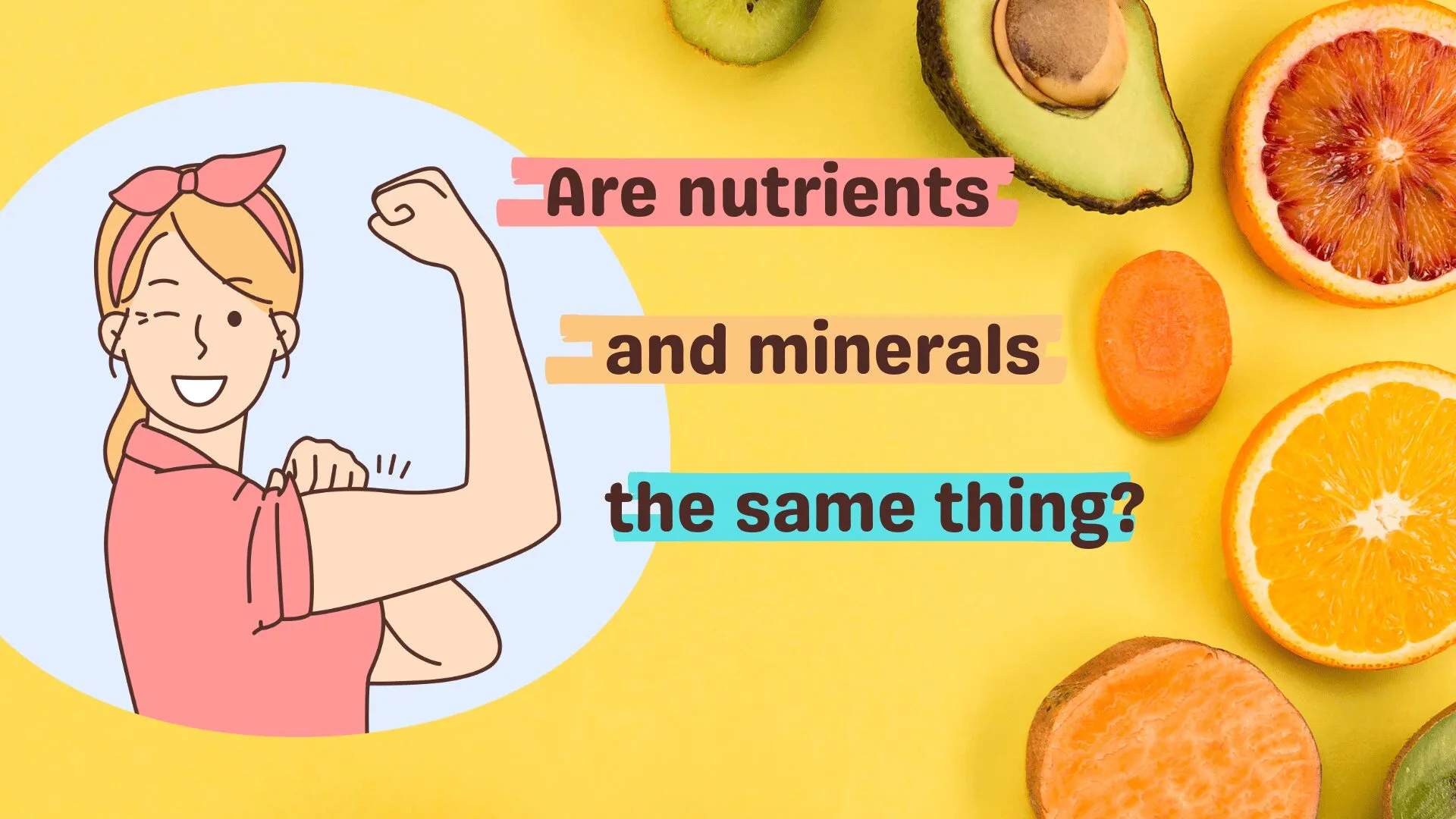Leave on an excursion through the huge scene of well-being and nutrition as we unfold the question: Are nutrients and minerals the same thing? In this review, we’ll explore the subtleties of these habitually utilized expressions reciprocally, inspiring their specific commitments to human administration assistance.
Explore the depths of vitamins and minerals, understanding their differences and the critical role they play in bolstering areas of strength for a healthy lifestyle. Go along with us as we help you with figuring out the subtleties so you can reach informed conclusions about your general administration support.
Understanding Nutrients:
Nutrients are the essential substances our body needs to function optimally. They are the building blocks that sustain life and support growth. The two main categories of nutrients are macronutrients and micronutrients. Carbohydrates, proteins, and fats are examples of macronutrients; vitamins and minerals are examples of micronutrients.
The Role of Minerals:
Minerals, on the other hand, are specific types of micronutrients that play a crucial role in various physiological functions. Unlike vitamins, minerals are inorganic elements required by the body in smaller quantities. Examples of minerals include calcium, iron, zinc, and magnesium.
Key Differences:
While all minerals are nutrients, not all nutrients are minerals. Nutrients refer to a broader category that includes both macronutrients and micronutrients, while minerals are a subset of micronutrients. In essence, minerals are a specific type of nutrient that the body requires in trace amounts for optimal functioning.
Functions of Nutrients:
Nutrients, as a whole, contribute to energy production, growth, and maintenance of bodily functions. Macronutrients provide the energy required for daily activities, whereas micronutrients, such as minerals, support a variety of physiological functions, including immune system function, enzyme function, and bone production.
Importance of Minerals:
Minerals, being essential micronutrients, are indispensable for maintaining health. For instance, the immune system depends on zinc, the blood needs iron to deliver oxygen, and healthy bones need calcium. Every mineral has a distinct purpose and importance inside the body’s complex equilibrium.
In summary: Are nutrients and minerals the same thing?
In conclusion, even though the phrases “minerals” and “nutrients” are sometimes used synonymously, it’s important to understand the differences between the two. Ingredients encompass a broad range of substances necessary for life, including both macronutrients and micronutrients. Minerals, a subset of micronutrients, are specific inorganic elements vital for various physiological functions.
Understanding these nuances is key to making informed choices about our diet and ensuring that our bodies receive the diverse array of nutrients they need to thrive.
Learn More: Peanut Butter’s Health Wonders and Nutrition Facts
What are the 7 main minerals?

1.) Calcium:
Calcium is a foundational mineral known for its role in strengthening bones and teeth. It supports blood coagulation, muscular contraction, and nerve transmission in addition to skeletal health.
2.) Iron:
Iron is a powerhouse mineral responsible for transporting oxygen in the blood. It is essential for maintaining energy metabolism and preventing anemia. Balanced iron intake includes both heme (found in animal sources) and non-heme (found in plant sources) forms.
3.) Magnesium:
Often underestimated, magnesium is a multitasking mineral involved in over 300 biochemical reactions in the body. It upholds muscle and nerve capability, assists with pulse guidelines, and helps in the formation of energy.
4.) Potassium:
Potassium is necessary for sustaining appropriate muscle contraction, controlling blood pressure, and preserving the body’s fluid balance. Including potassium-rich foods in your diet can have significant cardiovascular benefits.
5.) Zinc:
This trace mineral is crucial for immune function, wound healing, and DNA synthesis. In addition, zinc affects taste and smell perception and is necessary for many different enzymes to function.
6.) Sodium:
While often associated with excessive intake, sodium is an essential mineral for maintaining fluid balance, supporting nerve function, and aiding in muscle contraction. About sodium utilization, balance is fundamental.
7.) Phosphorus:
Phosphorus partners with calcium in building and maintaining strong bones and teeth. It is essential for the general operation of cells since it is also engaged in the metabolism of energy.
Learn More: Pancake Nutrition Discover the Surprising Health Secrets in Every Bite!
What are the 7 main nutrients?

1.) Carbohydrates:
Carbohydrates are the primary source of energy for your body. They come in two forms: simple carbohydrates (found in sugar) and complex carbohydrates (found in grains, fruits, and vegetables). Sustaining energy levels throughout the day requires eating a balanced diet of carbs.
2.) Protein:
Proteins are the building blocks of life, responsible for the growth, repair, and maintenance of cells. Proteins comprise amino acids, which are crucial for somebody’s capabilities. Meat, dairy, vegetables, and plant-based substitutes are wellsprings of protein.
3.) Fat:
Because it offers a concentrated source of energy and facilitates the absorption of fat-soluble vitamins, dietary fat is critical to general health. Nuts, avocados, and olive oil are great wellsprings of solid fats that help the cerebrum and cardiovascular well-being.
4.) Vitamins:
Organic substances called vitamins are essential for maintaining immunity, vision, and several other body processes, such as the health of the heart and bones. They are categorized as water-soluble (such as vitamin C and B-complex vitamins) and fat-soluble (such as vitamins A, D, E, and K), each serving unique roles in maintaining health.
5.) Minerals:
Minerals are essential inorganic nutrients that serve various functions in the body. Key minerals incorporate calcium for bone well-being, iron for oxygen transport, and potassium for liquid equilibrium. These minor components are important for chemical capability and stomach-related processes.
6.) Water:
Frequently neglected, water is a crucial supplement that upholds virtually every part of well-being. It assists with temperature guidelines, byproduct end, sustenance assimilation, and absorption. Remaining hydrated is vital for ideal physical processes.
7.) Dietary Fiber:
Found in fruits, vegetables, whole grains, and legumes, dietary fiber promotes digestive health and helps prevent constipation. It provides a feeling of fullness, contributing to weight management while supporting overall well-being.
Read More: Revitalize Your Diet with 25 High Protein Meals for Sustained Satisfaction
Read More: How Many Calories Do I Need Each Day?
FAQs:
Q1: What is the difference between nutrients and minerals?
A1: Nutrients encompass a broad range of substances essential for life, including both macronutrients and micronutrients. Minerals, a subset of micronutrients, are specific inorganic elements vital for various physiological functions.
Q2: What are the main functions of nutrients in the body?
A2: Nutrients, as a whole, contribute to energy production, growth, and maintenance of bodily functions. Macronutrients provide energy for daily activities, while micronutrients, such as minerals, support physiological functions like the immune system and enzyme function.
Q3: Can you provide examples of key minerals and their functions?
A3: Certainly! Calcium strengthens bones, iron transports oxygen, zinc supports the immune system, and magnesium aids in muscle and nerve function. Each mineral plays a distinct role in maintaining health.
Q4: Which minerals are considered indispensable for health, and why?
A4: Essential minerals like calcium, iron, zinc, and potassium are indispensable for health. They support functions like bone health, oxygen transport, immune function, and fluid balance, contributing to overall well-being.
Q5: What are the seven main nutrients and their primary sources?
A5: The seven main nutrients are carbohydrates, proteins, fats, vitamins, minerals, water, and dietary fiber. They are found in various sources, such as carbohydrates in grains and proteins in meat, dairy, and plant-based substitutes.




